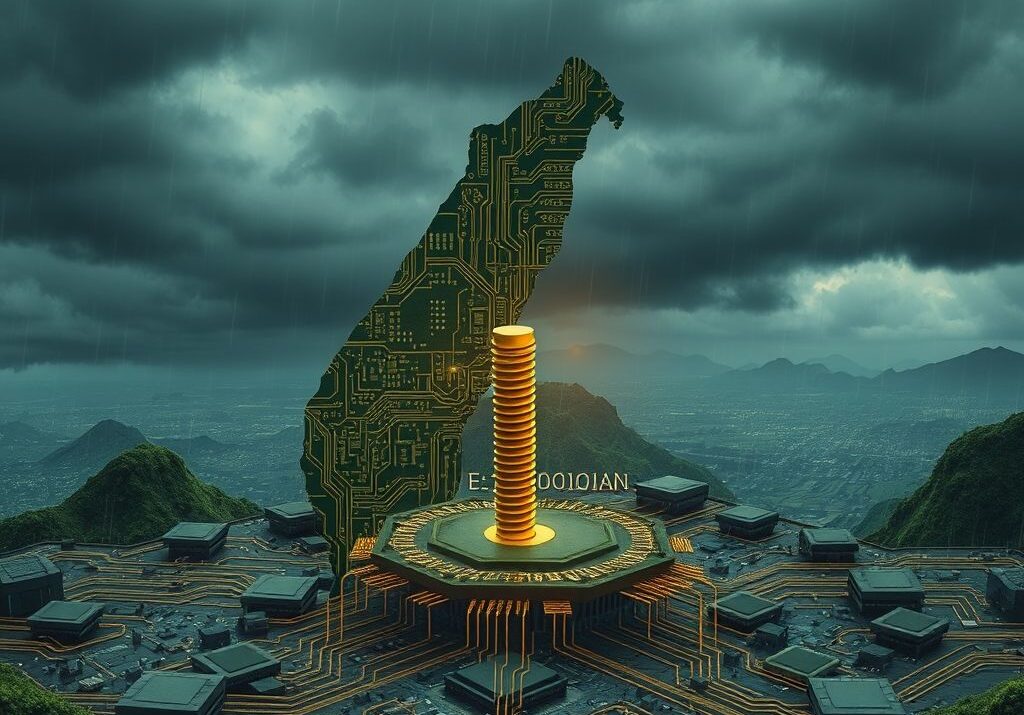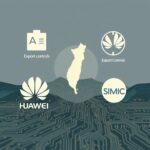Ever feel like global politics are just a giant chess game? Well, here’s the latest move on the board. It looks like Chinese tech giants Huawei and SMIC might be facing a bit of a headache. Why? Because Taiwan is clamping down on exporting tech crucial for building those super-smart AI chips.
I stumbled across an interesting piece on TechCrunch (https://techcrunch.com/2025/06/15/taiwan-places-export-controls-on-huawei-and-smic/) that dives into this, and it got me thinking. Taiwan, a powerhouse in semiconductor manufacturing, is putting the brakes on supplying certain tech to these Chinese companies. This could really throw a wrench into their AI ambitions.
Now, why is this such a big deal?
Well, AI is where everyone sees the future. Self-driving cars, smarter healthcare, you name it. And AI chips are the brains behind all of that. Huawei and SMIC have been working hard to become major players in this space. But without access to the best tech, it’s going to be an uphill battle.
This isn’t happening in a vacuum, of course. There’s a lot of geopolitical tension between Taiwan and China, and broader concerns about technology transfer and national security. It is part of a broader global trend where countries are becoming more protective of their tech, especially when it comes to sensitive areas like semiconductors. For example, the US has also implemented export controls targeting China’s access to advanced semiconductors and chipmaking equipment. This, coupled with Taiwan’s actions, creates significant barriers for Chinese companies looking to lead in AI chip development. (Source: U.S. Bureau of Industry and Security). According to a report by the Center for Strategic and International Studies, these restrictions have already slowed down China’s progress in certain areas of AI. (Source: CSIS, “China’s AI Development Plan”)
What does this all mean for us here in Cameroon? While we might not be directly involved in AI chip manufacturing, the ripple effects could be significant. If Huawei and SMIC slow down, it could affect the availability and price of technology we use, from smartphones to network infrastructure. It highlights the interconnectedness of the global economy, even on seemingly niche sectors.
Here are five things I’m taking away from this:
- AI Chip Race Gets Real: The competition to build the best AI chips is heating up, and export controls are becoming a key weapon.
- Taiwan’s Power Play: Taiwan’s position in semiconductor manufacturing gives it significant leverage in the global tech landscape.
- Geopolitics Matters: Tech is no longer just about innovation; it’s deeply intertwined with international relations and national security.
- Ripple Effects: Actions in one part of the world can have unexpected consequences elsewhere, affecting the availability and affordability of technology.
- China’s Innovation Challenge: This situation puts even more pressure on China to develop its own domestic semiconductor industry.
This whole situation is a reminder that the world of technology is constantly shifting. We need to stay informed and think critically about how these changes might impact us. It’s a complex puzzle, but understanding the pieces is crucial.
Frequently Asked Questions (FAQs)
- Why is Taiwan placing export controls on Huawei and SMIC? Taiwan is likely concerned about technology transfer to China and national security issues. They want to control who has access to their advanced semiconductor technology.
- What are AI chips and why are they important? AI chips are specialized processors designed to efficiently run artificial intelligence algorithms. They are crucial for everything from self-driving cars to medical diagnosis.
- How will these export controls affect Huawei and SMIC? These controls could make it much harder and more expensive for Huawei and SMIC to acquire the technology they need to develop advanced AI chips, potentially slowing down their progress.
- What is the global impact of this decision? This decision could reshape the global semiconductor landscape and impact the availability and cost of AI-related technologies worldwide.
- What alternatives do Huawei and SMIC have? They could try to develop their own domestic chip manufacturing capabilities, seek alternative suppliers (which may be difficult), or adjust their AI development strategies.
- Are other countries doing something similar? Yes, the United States, Netherlands and Japan have also implemented export controls targeting China’s access to advanced semiconductors and chipmaking equipment.
- How does this affect Cameroon? While the direct impact may be limited, it could influence the price and availability of technology products that Cameroon relies on.
- Is this a sign of a larger trend? Yes, this is part of a broader trend of countries becoming more protective of their technological assets, especially in strategic areas like semiconductors.
- Will this lead to a “tech war”? It could exacerbate existing tensions and potentially lead to further restrictions and retaliatory measures, furthering a “tech war”.
- How can Cameroon prepare for these changes? Cameroon can focus on developing its own digital infrastructure and diversifying its sources of technology to mitigate the impact of these global shifts. Also investing in human capital through training and education in STEM.








